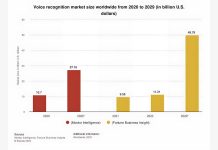Although the development of custom software was once considered the primary driver for digital transformation, the role of data has undeniably becoming more prominent. Software is increasingly taking a supporting role in data-driven decision making with the development of software becoming data-driven itself. The combination allows for effective solutions to be found in highly complex situations where procedural programming by itself is insufficient.
Digital transformation, an umbrella term used to describe the use of digital technologies to redesign a process to function more efficiently, is in many ways, the way an organization responds to the current technological environment. In a landscape with rapidly shifting technological demands combined with new offerings from startups, established companies are finding that digital transformation is more relevant than ever. Meanwhile, the nature of how data is managed is also shifting with cloud based applications for data analysis becoming commonplace.
Companies increasingly employ hybrid and multi-cloud strategies for data-storage, analysis and management based on a recent report by Pivotal. Companies utilize this strategy to an extensive degree driven by a belief that cloud-based strategies increase the efficiency and more importantly the flexibility of an organization. The Pivotal report also shows a significant drop off between current and projected custom database workloads. Companies expect that their custom developed applications will be increasingly less utilized due to the rising efficiencies presented by switching to managed cloud applications.
Data management strategy is a continuous challenge with a principal concern being how to avoid cloud-vendor lock-in, whereby a company’s data that was developed using one cloud based application becomes incompatible or very difficult to migrate to other applications. One solution may be in either custom development of integration software or iPaaS applications, which connect different software applications in the cloud.
Digital transformation at some level needs to be customized based on the organization’s particular business processes and software environment. iPaaS on its own may not be a one-stop-shop solution. More likely, a mix of custom software and iPaaS will provide the optimal means to effecting a sound digital strategy.
























